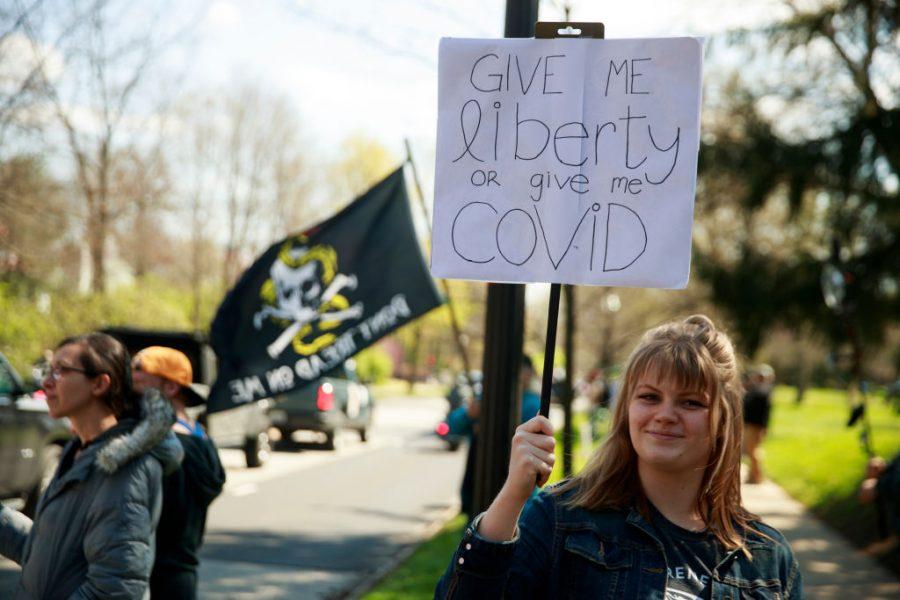
The beat
Lockdown demonstrations on the rise
In the midst of the Covid-19 pandemic, police forces around the globe have been monitoring lockdown demonstrations, in countries as widely scattered as the United States, Chile, Russia and India. Protesters, some bearing firearms, claim the measures introduced to contain the spread of the coronavirus infringe on civil liberties and are unnecessarily harming economies. In the US, authorities have called on Facebook to ban lockdown protest pages and related events that ‘defy government’s guidance on social distancing’.
Australian child sexual abuse ring broken
Australian Federal Police and US Homeland Security Investigations officers have charged 16 people in five Australian states with 738 child exploitation offences after a two-year investigation. The arrests followed a flow of information from US officials investigating a website containing child abuse material. Information on registered users of the site was sent to multiple jurisdictions around the world.
CT scan
Extremists take advantage of lockdown measures
Islamic State supporters are calling for terror attacks on hospitals and other ‘soft targets’ and extreme right-wing groups are harnessing conspiracy theories to draw recruits. Law enforcement agencies and counterterrorism officers are monitoring information being disseminated by extremists around the world. Police have received fewer referrals about attempts at radicalisation since the start of lockdown and are concerned that young people with time on their hands may be more vulnerable to extremist ideologies.
Lake Chad a war zone again
Violent extremism in Africa’s Lake Chad Basin has intensified since March. More than two million people have been displaced by violence as Boko Haram and Islamic State terror groups have established themselves in the area. The military presence in the region has increased, but research by the Institute for Security Studies shows that large-scale operations often trigger the return of insurgents affiliated with Boko Haram. Efforts are being made to extend military cooperation between Chad, Niger and Nigeria to diplomatic, developmental and peacebuilding efforts.
Checkpoint
Australia and New Zealand split on trans-Tasman travel
Prime Minister Scott Morrison has rejected suggestions from New Zealand Foreign Minister Winston Peters that travel restrictions between Australia and New Zealand might soon be eased, saying there are no plans to change current border measures. The suggestion has been made amid the two countries’ success in flattening the contagion curve of Covid-19. The ‘trans-Tasman bubble’ has been cited as an example of how to tackle the pandemic through early government action and strong policy input from scientists and medical professionals.
Iraq keeps border with Iran shut
Iraq has refused to reopen its border with Iran, despite pressure from the Iranian government. The border was closed in early March as Iran became one of the global epicentres of the Covid-19 pandemic, taking a toll on its exports. Iran’s leaders want the border reopened to trade as part of their efforts to reduce the economic impact of the disease. Iran has been accused of taking major risks by allowing some businesses to reopen and people to leave their homes while the numbers of deaths and infections remain high there.
First responder
Potential coronavirus vaccines start human trials
Human trials of a potential coronavirus vaccine begin this week, with the UK and China leading the way. China has approved two experimental vaccines for clinical testing, and Australia is expected to be just a few weeks behind with its own clinical trials. Despite these developments, the World Health Organization says that a vaccine is at least a year away.
Inquiry into Australia’s ‘black summer’ of bushfires begins
The NSW inquiry into the state’s bushfire disaster is underway, with online meetings being held between the former deputy commissioner of NSW Police and the former NSW chief scientist and engineer, who are leading the six-month inquiry. The royal commission into the fires, which is taking place separately, will focus on land management and mitigating the risk of future bushfires, but will not look specifically at climate change. Its final report is expected by 31 August.